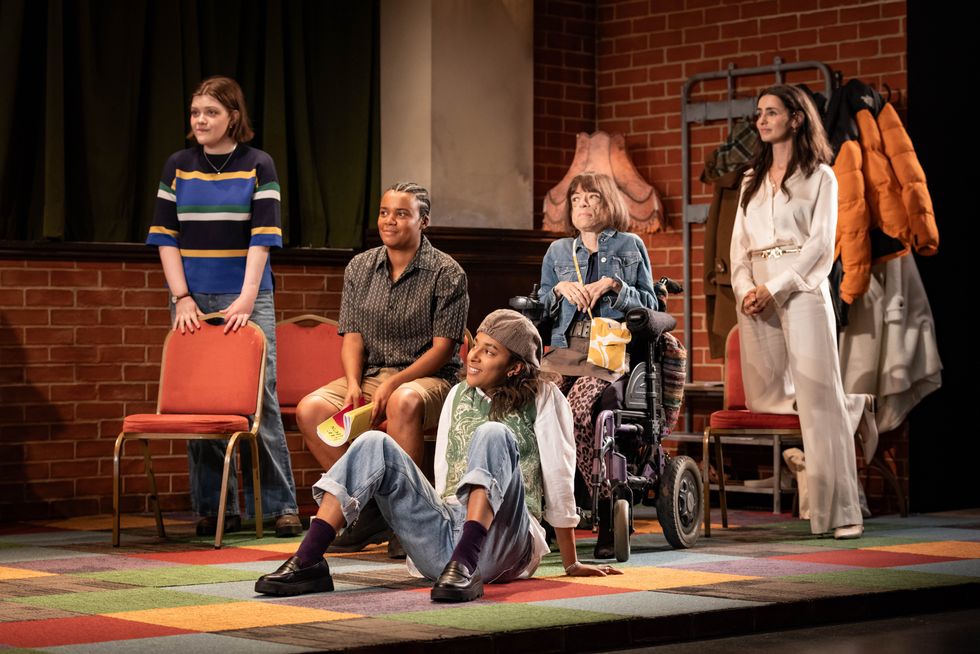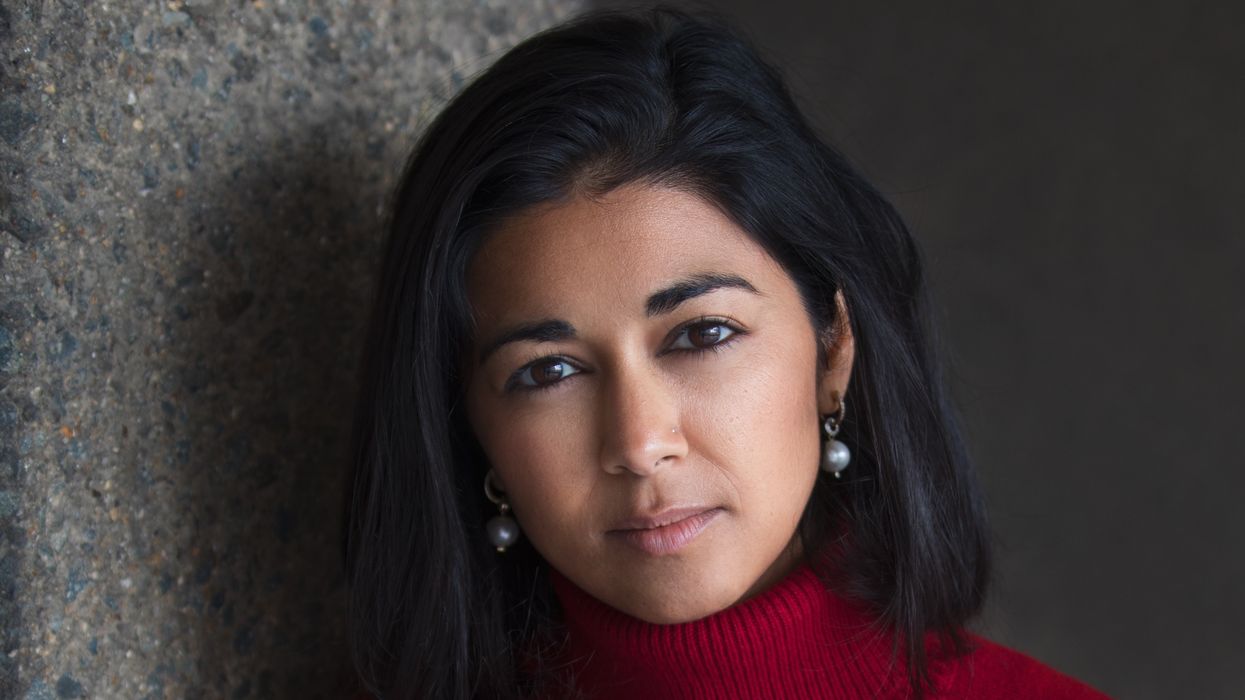A NEW play looks at the cultural divisions in society, especially in the West, and shows how people can still come together and build a community even if they don’t always agree, its playwright has said.
The Ministry of Lesbian Affairs, by Iman Qureshi, follows a group of women, mostly lesbians, who come together to sing in a choir, while sharing their lives, making new friendships, experiencing love, and finding humour during their time spent together. Themes of identity, politics and personal struggles are explored in the story.
“I hope everyone comes to watch it,” Qureshi, 38, told Eastern Eye.
“When I wrote this, I wanted to show how a minority community, like a group of lesbians, can represent a universal story that anyone can connect with. So, I hope the play reaches a broad audience. Of course, I’d love all the lesbians to come and see it, but I believe it has a much wider appeal. “
The play touches on issues that affect many people, especially women, today.”
First performed at Soho Theatre three years ago to a packed audience, the play has now been reworked for the Kiln Theatre by Qureshi and director Hannah Hauer-King.
The writer said, “It’s quite rare for a play to transfer, especially three years after its original run. We’ve worked hard to update it, so it feels fresh and relevant to 2025. During the initial performance, the audience laughed a lot, which actually surprised me. “
I kept telling the marketing team it was a drama, but they insisted it was a comedy. I didn’t realise it was that funny. During the performances, the actors had to pause because people were laughing so much. The response was very warm and joyful.”
Describing the changes for the Kiln production, Qureshi added, “The ending has changed a lot. We rewrote parts during rehearsals. At the Soho Theatre, the first half felt light and comedic, while the second half felt quite heavy. We wanted to bring more lightness and music into the second half, so it didn’t feel like we were switching genres. Now, the whole piece feels more unified in tone.”
Qureshi was born in Pakistan, grew up in Saudi Arabia, and moved to London at 16. She said her hope was that the word “lesbian” in the title will not stop south Asians from coming to see the play.
“I know the word ‘lesbian’ in the title might put off some in the Asian community, like aunties and uncles. But I really hope they come. My mum watched it the last time and loved it. Both my parents are coming this time. I hope others from south Asian backgrounds see that lesbians are human, too. There’s humour, love, and passion. I hope people are moved by it.”

Qureshi said the play reflects real issues faced by many Asian women and added that there is still “a lot of ignorance” in Britain about how hard it is to migrate. “People think you can just come here, get a job, a council house and benefits. But that’s not true,” she said.
According to her, the heart of the play is about listening. “We live in a world where it’s easy to avoid people who don’t think like us. Online, we only see what we agree with. But the theatre is different, you can’t switch it off. You have to sit and listen. You might not agree, but you can still understand and empathise,” she said.
Qureshi added that the play’s choir conductor has a line that sums up this message: “You sound best when we listen to each other.”
Another theme is about finding one’s voice, especially for those who have felt shame about who they are. “Many characters in the play have struggled with identity – gay shame, lesbian shame,” she said. “The choir gives them a safe space to be proud, to discover who they are, and to celebrate each other.”
Qureshi studied English literature, initially worked in journalism, law and the charity sector, and became a full-time playwright around six years ago. Her earlier play, The Funeral Director, won the Papatango Prize in 2018 and opened the door to more writing opportunities.
Reflecting on representation in British theatre, Qureshi said Asian stories are still underrepresented. “We struggle to get big names or access large stages. Often, when our stories are told, they’re negative – about terrorism or honour killings. That makes me angry. I wanted to prove I can write anything, not just ‘Asian’ topics.”
She believes Asian stories matter because they challenge racism and help people feel seen. “ G r o w i n g up, everyone I saw on TV was white. I remember wishing I was white. Today, I’m proud of my heritage, my skin, and my language. But young people shouldn’t have to feel like I did.”
Qureshi credits role models such as the National Theatre’s Indhu Rubasingham, and Asian playwrights Tanika Gupta and Anupama Chandrasekhar for paving the way for those like her.
The Ministry of Lesbian Affairs opened at Kiln Theatre on June 13 and will run until July 12.





